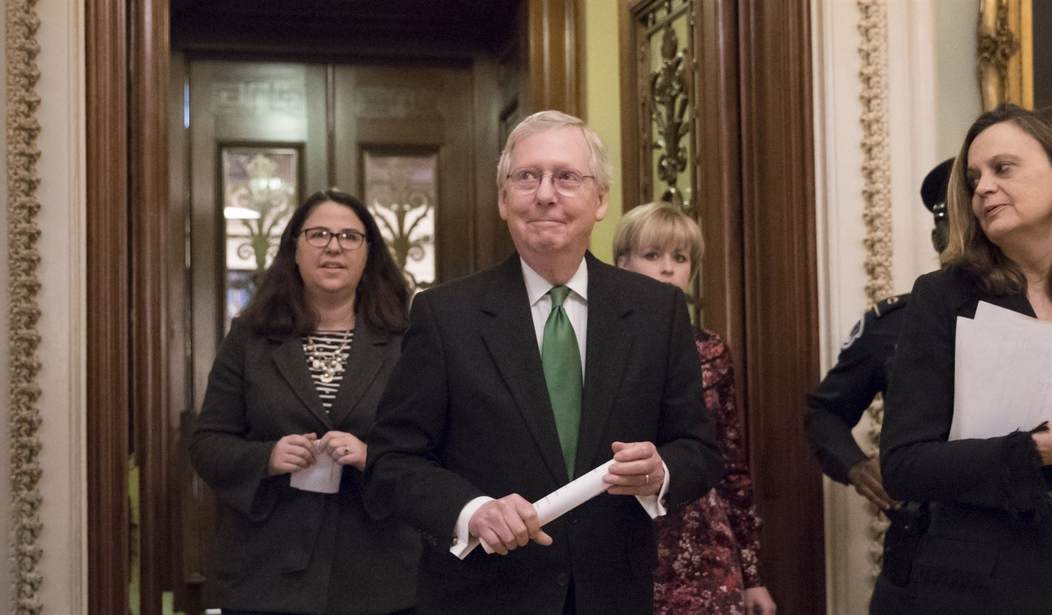The signature legislative achievement of the Republican Party under the Obama administration was the passage of the Budget Control Act of 2011 (BCA). Passed with Democrats in control of the Senate and presidency, the BCA aimed to decrease the deficit by $2.1 trillion over the course of 10 years, including $1 trillion in savings from the budget caps it put in place. Though the BCA alone was not enough to bring runaway spending entirely under control, it was an important step along the road to fiscal responsibility. Yet with control of both houses of Congress and the White House, Republicans have eliminated the discretionary spending caps to be—leaving you, the American taxpayer, on the hook for well over $300 billion over the next two years alone in extra costs.
The National Taxpayers Union Foundation (NTUF) calculated last year that the BCA had saved taxpayers $7,400 per household. Had the budget caps been kept in place, the total savings per household would have grown to over $16,000 by 2021. When taking into account decreased interest payments on a smaller overall amount of debt, the total savings by 2021 would have been $1.9 trillion.
Even before this latest failure to exercise spending restraint, the growing debt was already a serious concern. An NTUF analysis following the passage of tax reform legislation found that publicly-held debt was on track to surpass GDP by 2024.
Such a large amount of debt has real consequences for American taxpayers. Simply paying the interest on the debt already takes up a substantial portion of the federal budget—$269 billion, which is nearly 7 percent of total expenditures in FY 2017 and equivalent to more than 22 percent of what Congress authorized in discretionary spending. Yet as the debt grows, that number will continue to grow even larger, wasting more taxpayer dollars on simply servicing the debt. Higher government borrowing can also “crowd out” investment in other, more profitable ventures, as well as limiting the federal government’s ability to respond to economic crises.
Recommended
With this latest budget deal, Republicans seem to be proving that they are not yet serious about solving the debt after all. Instead of trading higher defense spending for reductions in other areas, they have traded higher defense spending for increases in social spending.
Addressing the deficit requires actions that are rarely popular, but Congress will have to make politically difficult decisions to bring the debt under control. While some may suggest that tax reform legislation already pointed to Republican indifference to debt, the fact is that the key to solving the nation’s debt issue always laid on the spending side of the ledger, and specifically in entitlement programs. No tax increase could reasonably cover expected growth in entitlement spending, on track to account for 80 percent of new spending over the next decade prior to this budget deal. Yet the BCA signalled Congress’s commitment to bringing the debt under control, and established meaningful spending cuts. That commitment clearly no longer holds.
The BCA represented just part of the spending reductions that would be necessary for getting Congress’s financial house in order, but it was an important step in the right direction. It was also the easiest politically, having only minimally not impacted entitlement programs sorely in need of comprehensive reform. Republican fortitude brought about the BCA despite not having control of the White House, but Wednesday’s announcement is a concerning sign that they are no longer willing to do the heavy lifting that will be necessary to get the national debt under control.
Andrew Wilford is an Associate Policy Analyst with the National Taxpayers Union Foundation. Follow him on Twitter @PolicyWilford.

























Join the conversation as a VIP Member